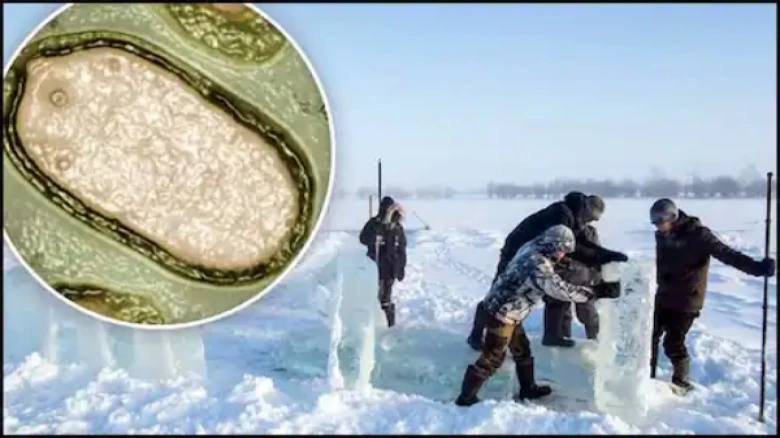Scientists have resurrected a 48,500-year-old zombie virus that had been frozen for 48,500 years...
Digital Desk: As seen by researchers who recovered nearly two dozen viruses, including one buried under a lake more than 48,500 years ago, climate change is gradually thawing the ancient permafrost, which may represent a new threat to mankind.
European researchers studied ancient samples taken from permafrost in Russia's Siberia region. According to a Bloomberg story, they recovered and described 13 novel diseases, dubbed "zombie viruses," and discovered that they remained contagious despite spending millennia locked in the frozen earth.
The oldest, known as Pandoravirus Yedoma, is 48,500 years old, breaking the previous record of a 30,000-year-old virus discovered by the same scientists in 2013.
Scientists have long warned that permafrost thawing caused by air warming will intensify climate change by releasing previously contained greenhouse gases such as methane. However, its impact on dormant pathogens is less clear.
The biological risk of reanimating the viruses investigated, according to the team of researchers from Russia, Germany, and France, was "absolutely insignificant" due to the strains they targeted, mostly those capable of infecting amoeba microorganisms.
The possible resurgence of a virus that may infect animals or humans is significantly more serious, they warned, adding that their findings can be extrapolated to demonstrate the threat is real.
"It is thus expected that ancient permafrost may release these unknown viruses upon thawing," they wrote in an unpeer-reviewed article submitted to the preprint repository bioRxiv, according to the Bloomberg report.

Leave A Comment